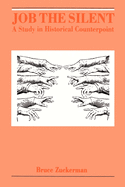
Offering an original reading of the book of Job, one of the great literary classics of biblical literature, this book develops a new analogical method for understanding how biblical texts evolve in the process of transmission. Zuckerman argues that the book of Job was intended as a parody protesting the stereotype of the traditional righteous sufferer as patient and silent. He compares the book of Job and its fate to that of a famous Yiddish short story, "Bontsye Shvayg," another covert parody whose protagonist has come to be revered as a paradigm of innocent Jewish suffering. Zuckerman uses the story to prove how a literary text becomes separated from the intention of its author, and takes on quite a different meaning for a specific community of readers.


